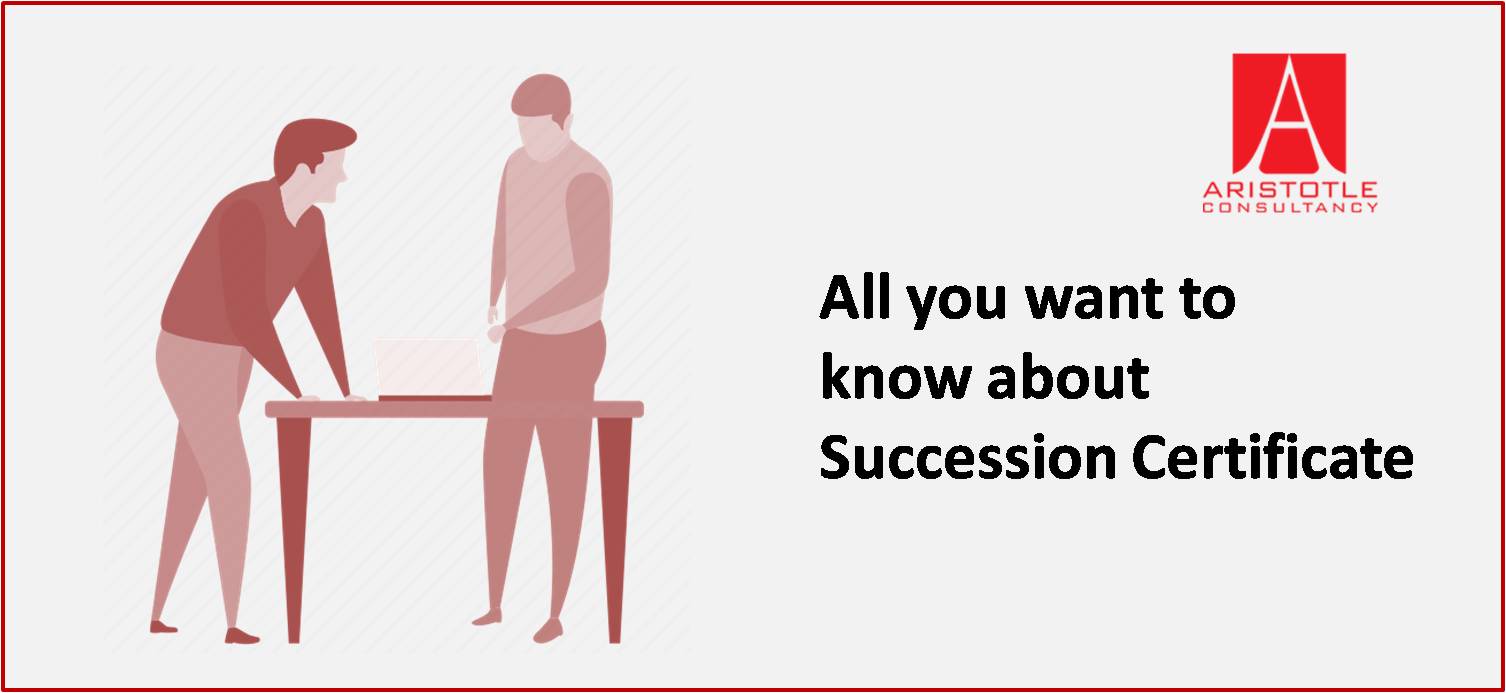In the current scenario, state of affairs have been challenging and the environment is super charged up both emotionally and financially with many families losing their loved ones. Crises for money has provided more weightage to this subject i.e. people dying without being transferring their assets to the legal hires. As per sections 380, 381 and 382 of Indian Succession Act 1925, a succession certificate holder can acquire the assets along with debts of the deceased person. Let us take a glimpse into the Law and know more about it.
What is a Succession Certificate?
As per Indian Succession Act, 1925 a Succession Certificate is a document issued by the court to ascertain lawful right of legal hires, when a person dies without a will. This includes transfer of securities, debts and assets of the deceased to the lawful hire. Assets include Insurance, Pension, Mutual Funds, Government undertakings, Bank Balance, Retirement benefits etc. This document makes the holder rightful owner of the assets, securities and pay debts on behalf of the deceased much before the legal successor of the property is ascertained. It also imparts safety to the holder against any loss or to people who are accountable for securities or owe debt.
Note: Succession Certificate is not applicable to immovable properties.
Who issues the Succession Certificate?
District Judge of the suitable jurisdiction where the departed individual was residing at the time of death and if the authority is unable to ascertain such a place then the jurisdiction is transferred to a place where the assets of the deceased are found.
What is the method to get a Succession Certificate?
To get a certificate the applicant must file a petition in court. The Judge shall verify the truthfulness of the claim and proceed with further proceedings. Stepwise process is discussed for your reference:
- Step 1 – Filling a Petition:
A petition should be filed in the authorised format and submitted post authenticating it in civil court under appropriate jurisdiction to claim ownership of assets of the deceased. A copy of death certificate should also be affixed along with. Requisites of the petition are –
- Place, date and time of death of the deceased.
- Particulars of other legal relatives /hires.
- Details of residence and other properties of the deceased at the time of death, within which Jurisdiction area the Judge falls in.
- Rights of the petitioner.
- No impediment prior to the grant of the certificate.
- Documents like Passports or Ration cards.
- List of securities or debts for which the certificate is applied for.
- No objection Certificate for all other legal hires.
- Step 2 – Submitting the Fees:
As per The Court Fees Act 1870, a fixed percentage of the value of the estate is imposed as fee by the court to be paid in terms of Judicial Stamps by the petitioner.
- Step 3 – Getting Notice published in the Newspaper:
After examining the petition the court will get it publicized in a national newspaper and will independently notify the respondents and other hires. The court will now provide a period of 45 days for anyone to raise objection against the claim along with valid documents.
- Step 4 – Granting the Certificate:
The court grants the Succession certificate to the petitioner if no one claims the ownership of the assets of the departed within 45 days, given that the claims are verified.
In case of multiple petitioners, the court issues a joint succession certificate, but each single asset has only one certificate granted.
- Step 5 – Signing the Indemnity Bond:
To ensure that the granted certificate is not misused the petitioner is supposed to sign an Indemnity Bond for which some security has to be presented before the court.
Succession Certificate Fee?
A specific value of the percentage of the estate is imposed by the court in the form of judicial stamps when the petition is filed. This percentage ranges between 2-3% of the value of the estate, but varies from state to state across the country.
Documentation necessary for Succession Certificate?
The court verifies the authenticity of the claim by the petitioner and obtains following documents relating to the deceased:
- Time of death
- Address
- Full details of legal hires
- No Objection Certificate from the legal hires
- Family details
- List of securities, debts and assets
- Rights of the individual petitioning for the certificate
- Property details
What is the validity of the Succession Certificate?
This certificate is valid throughout the country if the holder is a resident of India and if the successor is a resident of another country then the legal succession certificate is granted by the government appointed Indian representative. But for this, the document should be duly stamped following the Guidelines of the Court Fees Act 1870.






